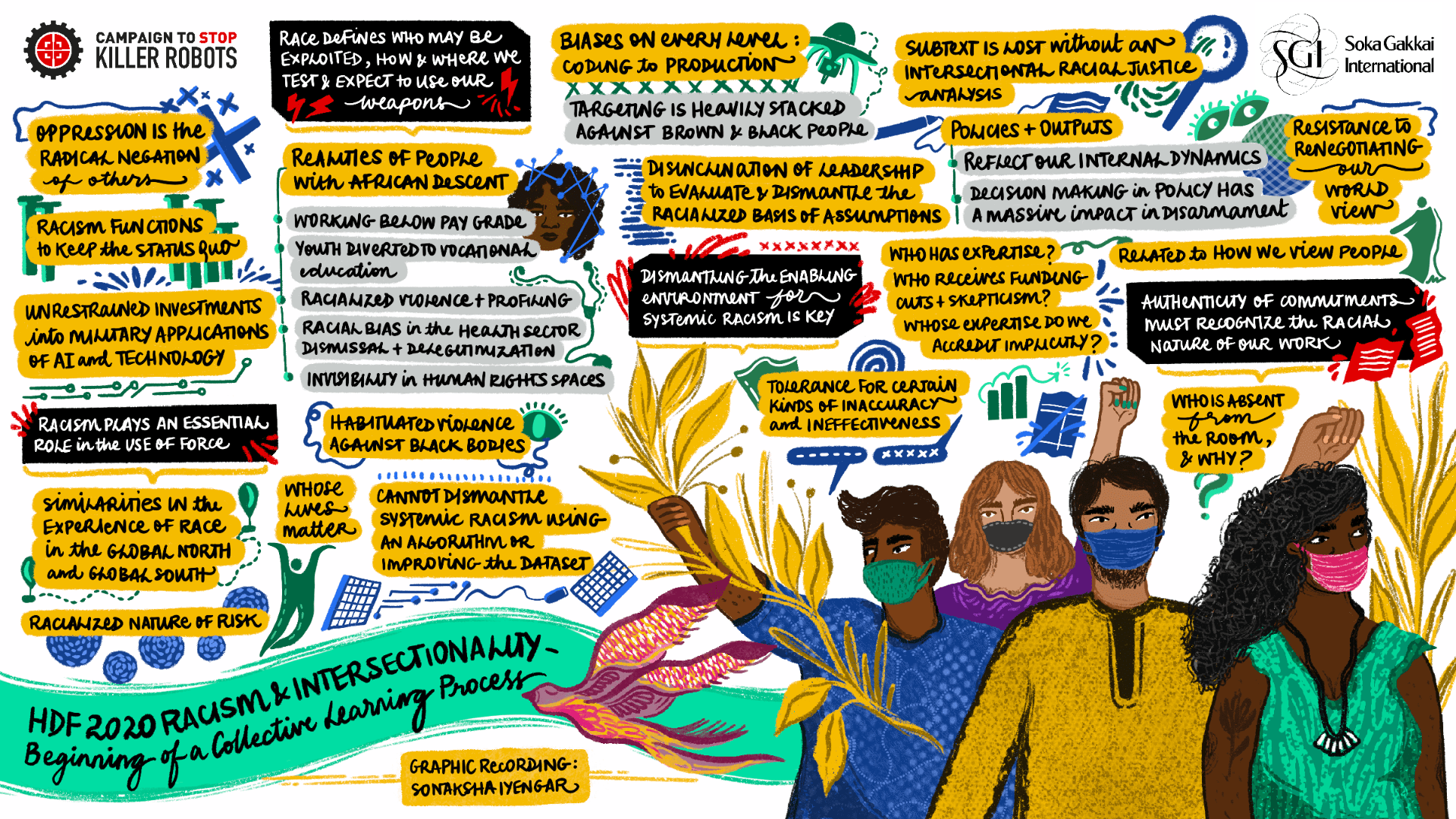The following reflection is from Rina Mjeku, a recent Pace University graduate who participated in the POL297L Global Politics of Disarmament and Arms Control class in Fall 2021. Students were given service learning assignments with disarmament advocacy organizations working in and around the UN and New York City. Rina’s assignment was with the network of organizations that planned the 2021 Humanitarian Disarmament Forum on Race and Intersectionality.
As I was considering which community partner to work with for my civic engagement hours, I was drawn to the Humanitarian Disarmament Forum (HDF). I had great interest in the 2020-2021 Forum topic, on Race and Intersectionality and wanted to help with the planning process in any way I could.
Working with the HDF was an eye-opening experience. It allowed me to see the behind-the-scenes of planning a forum attended by hundreds of disarmament activists from around the world. I learned how the disarmament community can become intersectional and anti-racist in their work and organizations.
Hayley Ramsay-Jones, an HDF organizer and prominent member of the Campaign to Stop Killer Robots, reached out to me and was thrilled to have me as a volunteer and help out in planning the forum. The planning team met each week for about two hours, and my primary role was to take notes in order to ensure everyone’s ideas were documented and incorporated into the Forum.
Each week the team would start off with a brief outline of the areas we would focus on. The meetings finalized the details of the facilitators and speakers. The planning team also brainstormed possible questions to ask attendees during the workshops section of the forum.
On the day of the Forum, all of the planning members gathered one hour before to sort out last-minute details and plans, run through the schedule, and figure out any tech issues that might come up along the way. I thought all the panelists did an amazing job in addressing the importance of dismantling all forms of oppression such as racism, ableism, classism, and sexism in disarmament spaces, and the ways our lack of action and attention on intersectionality manifests in our work and environment.
I especially liked the workshops where the forum split all the attendants into breakout rooms to further discuss the implementation of intersectional change in humanitarian disarmament communities and organizations. I was a notetaker in two breakout rooms that were discussing how to be a good ally and various acts attendees can do within their organizations to combat performative activism.
The other breakout room focused on creating organizational change and the attendants discussed some of the barriers they face when implementing anti-racist policy structures in their organizations and the ultimate solutions to those barriers.
My biggest takeaway from the Forum was for attendees to take a step back and analyze the ways they may contribute to an exclusive environment in the disarmament community.
I had the great pleasure to work alongside so many disarmament activists from around the world. This civic engagement experience has allowed me to see the ins and outs of planning a conference. It also offered me insight into how vital it is to be aware of intersectionality in advancing humanitarian disarmament, and the goal of disarmament in general.

